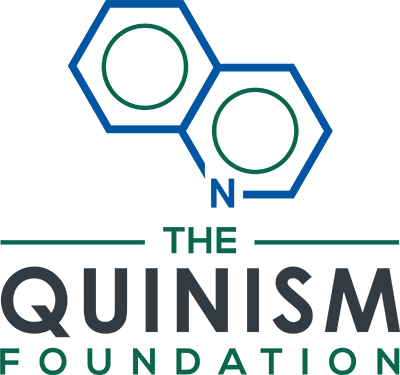The Quinism Foundation Now Offers Disability Evaluations
U.S. veterans seeking VA disability compensation for conditions they believe are due to their use of mefloquine (previously marketed as Lariam) now have the opportunity to seek an independent medical opinion (otherwise known as a “nexus letter”) directly from The Quinism Foundation to support their claim.
As reported in our recent press release, The Quinism Foundation will be offering these services under the direction of Dr. Remington Nevin, MD, MPH, DrPH, a former U.S. Army public health physician and Johns Hopkins-trained psychiatric epidemiologist and drug safety expert, who serves as Medical Director of The Quinism Foundation.
Dr. Nevin has nearly a decade of experience aiding veterans successfully obtain up to 100% disability ratings for conditions conceded by the VA to be at least as likely as not the result of exposure to quinoline antimalarial drugs, including mefloquine.
Conditions which have been successfully awarded include anxiety and depressive disorders, sleep disorders including sleep apnea, paresthesias and radiculopathies, migraine and headache disorders, cranial neuropathies, and visual and vestibular disorders, among others.
“Veterans disabled as a result of their exposure to these neurotoxic drugs should not claim quinism or chronic quinoline encephalopathy directly,” said Dr. Nevin. “Neither should they claim synonymous conditions, such as ‘mefloquine poisoning,’ or ‘mefloquine toxicity,’ as the VA does not yet recognize these formally as medical conditions.”
“Instead, veterans should claim that the service-connected use of the quinoline drug, such as mefloquine, was the cause of another medical condition, such as a drug-induced psychiatric disorder, or a drug-induced neurologic disorder, or a physical disorder, such as sleep apnea, linked to one or more such psychiatric or neurologic cause.”
Dr. Nevin spoke recently about claiming VA disability benefits for conditions caused by mefloquine in this interview.
Dr. Nevin stresses that veterans who wish to obtain an independent medical evaluation from the foundation must ensure they have complete documentation related to their case. In most cases, Dr. Nevin notes, the process requires a through review of a complete copy of the veteran’s VA claims file, or “C-File.” Dr. Nevin strongly encourages veterans to work with an accredited veterans’ representative, such as a veteran service officer, to obtain this documentation.
Veterans contemplating these services are encouraged to begin this process immediately, as it can take upwards of 12 months to obtain the “C-File” from the VA.
Once this documentation is obtained, veterans should contact the foundation directly to learn more about the availability of these services. Veterans or their representatives with questions about the process are also encouraged to contact the foundation for more information.
Although a paid service, veterans will be offered disability evaluations at reduced fees, to be subsidized through the foundation’s charitable activities. Although fees paid to the foundation are not deductible for income tax purposes as charitable contributions, tax-deductible support of the foundation’s charitable mission will assist needy veterans in accessing these services.
The foundation is proud to be listed as a registered charity in the PayPal Giving Fund, on Amazon Smile, and in the Network for Good’s donor-advised fund. You can also read more about the foundation’s charitable activities by reviewing our listing on Guidestar. The Quinism Foundation has also partnered with Vehicles For Charity to provide an easy-to-use, tax-deductible process to donate your vehicle.
The Quinism Foundation Calls on Congress to Fund Research into Mefloquine Neurotoxicity
The Quinism Foundation is again calling on Congress to fund critical veteran-focused research into the chronic adverse neurological and psychiatric effects of mefloquine, by establishing mefloquine neurotoxicity / chronic quinoline encephalopathy (quinism) as a perennial research topic under the Peer-Reviewed Medical Research Program (PRMRP) within the Department of Defense (DoD) Congressionally Directed Medical Research Program (CDMRP).As described in a press release, and an accompanying white paper, the foundation has identified five focus areas for future research, including conducting high-quality epidemiological studies related to persistent and latent health effects of antimalarial quinolines, particularly mefloquine.



